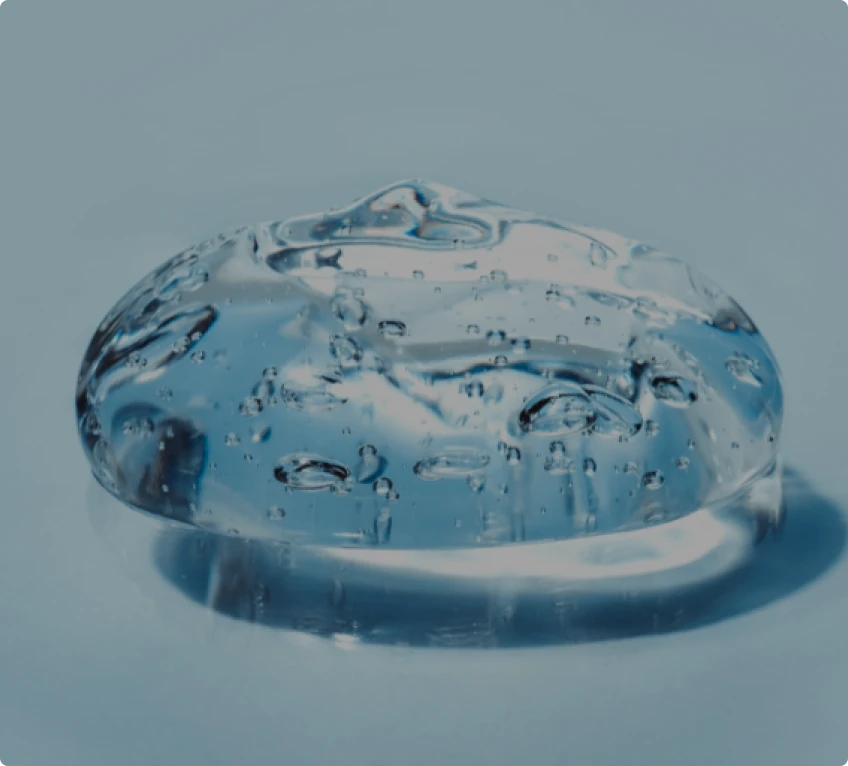Importance of ceramides in skin care

Ceramides
Ceramides may be overshadowed by more popular skincare ingredients like retinoids, acids, and vitamin C, but they’re essential for skin health and are, arguably, more important for improving skin health.
There are some key reasons to include ceramides in your skincare routine and a few things you need to keep in mind when choosing a ceramide-based product.
What Are Ceramides?
Ceramides are lipids (fats) that naturally occur in your skin. They’re essential for maintaining a healthy skin barrier and keeping your skin hydrated.Your skin barrier has a ‘bricks-and-mortar’ like structure where your skin cells (the bricks) are held together by a glue-like mixture of lipids (mortar). This mixture, known as your lipid matrix, is made up of around 50% ceramides, 25% cholesterol, and 15% fatty acids.
Although your skin naturally produces these lipids, they can be stripped from your skin by harsh cleansers, over-exfoliation, and sun damage. Your skin also produces fewer ceramides as you age.When the levels of ceramides and other lipids in your skin are depleted, gaps form in your skin barrier that water can easily escape through and irritants can easily enter. This can leave your skin dehydrated, irritated, and sensitized.
To keep your skin barrier intact, or repair it when it’s damaged, it’s important to include skin-identical ingredients, like ceramides, in your skincare routine.
Examples of common ceramides in skin care products include:
- Ceramide NP
- Ceramide EOP
- Ceramide NS
- Ceramide EOS
There are also ingredients known as ‘ceramide precursors’, like sphingosine and phytosphingosine, that encourage your skin to naturally produce more ceramides.
Why Should You Use Ceramides?
The main reason to use skincare products containing ceramides is to replenish your skin’s naturally occurring lipids and restore your skin’s barrier.
However, there are some additional benefits to including ceramides in your skincare routine, for example:
- Increasing skin hydration
- Repairing your skin
- Reducing redness and soothing skin
- Protecting your skin from environmental damage
- Improving fine lines and wrinkles
- Improving acne
- Fading dark marks and brightening your complexion
Hydrating
Ceramides are the main lipids that keep your skin barrier intact and when they’re depleted your skin can become dry and irritated. A ceramide deficiency is common in dry and sensitive skin conditions like eczema and rosacea. Both of these can be improved by incorporating ceramide-containing moisturizers into your skincare routine.
One study found that a single application of a ceramide-containing moisturizer reduced water loss and increased overall skin hydration almost instantly. This was further improved after a twice-daily application for 28 days.
Soothing
Ceramides help to soothe your skin by reducing inflammation and increasing skin hydration. By replacing any depleted lipids in your skin barrier, ceramide-containing products help prevent water loss and block irritants from entering your skin where they initiate your skin’s immune system and inflammatory responses.
Skin Repairing
Inflammation can interfere with your skin’s renewal process and delay wound healing. As ceramides help reduce inflammation and strengthen your skin barrier, they can help your skin repair itself.
Some types of ceramides also have antibacterial properties which can encourage any cuts or scrapes to heal faster by preventing the colonization of bacteria in any areas of broken skin.
Acne-Fighting
Acne is mainly caused by a combination of increased oil production, slower cellular turnover, C. acnes bacteria, and inflammation. However, research has also identified that acne-prone skin has lower levels of ceramides and free sphingosine than healthy skin.
Ceramides can help improve acne by preventing the growth of bacteria, reducing inflammation, and improving tolerance of irritating acne medications like benzoyl peroxide and retinoids.
Anti-Aging
Research suggests that ceramides may offer some protection against sun damage. For example, a skincare regimen that contained a ceramide-containing sunscreen and moisturizer prevented redness and hyperpigmentation from sun exposure as well as improved skin hydration, and maintained skin overall skin health.Other research has found that twice-daily application of a ceramide-containing moisturizer for 28 days improved the appearance of wrinkles and skin texture.
Some of this improvement may be purely down to how ceramides increase skin hydration.
When your skin is dehydrated, it loses its plumpness and elasticity which can enhance the appearance of fine lines and wrinkles as well as leave your skin looking dull and rough. Increasing your skin’s hydration levels can lead to almost instant improvements in fine lines and wrinkles but this is temporary unless you continue to moisturize regularly.
Brightening
Ceramides may help fade dark marks and brighten your overall complexion by inhibiting the activity of tyrosinase - the enzyme required for melanin production. One study also found that moisturizers and sunscreens with added ceramides were able to prevent sun-induced hyperpigmentation.
Inflammation can also cause your skin to produce too much melanin which leads to dark patches of skin and an uneven skin tone. As ceramides are able to reduce inflammation, they may be able to prevent abnormal pigmentation from developing in the first place.
What To Look For In A Ceramide-Containing Product
Research suggests that ceramides, alone, may not be much more effective than petroleum jelly when it comes to reducing moisture loss. Instead, they should be paired with cholesterol and fatty acids in a similar ratio to how they are found naturally in your skin.
Some research suggests that applying ceramides, cholesterol, or fatty acids on their own can delay skin barrier recovery. However, when used together, they can improve your skin’s hydration in as little as 30 minutes.
Products containing this lipid trio often used a premixed blend called SK-INFLUX. This will be listed on the product's ingredient list as:
Ceramide NP, Ceramide AP, Ceramide EOP, Phytosphingosine, Cholesterol, Sodium Lauroyl Lactylate, Carbomer, Xanthan Gum.
Although there may be other ingredients listed in between.This blend may not contain the ideal ratio of ceramides, cholesterol, and fatty acids, but it can still help nourish and hydrate your skin.The overall formulation of a product will also make a huge difference in how hydrating a ceramide-based product is.
For example, ceramides pair well with other hydrating ingredients like hyaluronic acid, glycerin, panthenol, and niacinamide.
Humectants, like hyaluronic acid and glycerin, help to draw water into your skin cells while the ceramides form a physical barrier to keep it there.
Ceramide Precursors
As well as adding ceramides into your routine, it’s worth looking for products that also include ceramide precursors.
Ceramide precursors are ingredients that encourage your skin to produce more of its own naturally occurring ceramides. The main precursors are sphingosine and phytosphingosine but there are a few other ingredients that can also encourage your skin to produce more lipids.
These include:
- Niacinamide
- Vitamin C
- Panthenol
By combining ceramides with these ingredients, you can boost your skin’s levels of ceramides in both the short-term and long-term.
Natural vs Synthetic Ceramides
Natural ceramides can be sourced from human or animal skin but, in skin care, they are mainly sourced from plants (phytoceramides).
Phytoceramides tend to be very expensive and may be less effective than other types of ceramides. However, ceramides can also be created synthetically in a lab environment. These ‘pseudo ceramides’ have been shown to be equally as effective as animal-derived ceramides but they cause fewer adverse reactions. Most skincare products use synthetic ceramides for this reason.
How To Use Ceramides
Ceramides can be used twice a day in both your AM and PM routines. However, a lot of ceramide-containing moisturizers can feel heavy on your skin so you may prefer to use them in the evening.
However, moisturizers aren't the only products to contain ceramides, you can also find serums and sunscreens with added ceramides.
Ceramides may be even more useful when used in the evening as that’s when your skin is at its most permeable (it’s easier for things to pass in and out). This usually means you lose more water from your skin overnight and your skin is more likely to be irritated. For example, eczema and itchy skin conditions tend to be worse at night.On the plus side, increased permeability means that it will be easier for the ceramides to penetrate your skin where they can help trap moisture and reduce irritation and inflammation. You can also make it easier for your ceramide product to penetrate your skin by applying it to damp skin as damp skin is more permeable than dry skin.As ceramides are skin-identical ingredients, they’re suitable for all skin types and are fine to use if your skin is sensitive or irritated. They’re also safe to layer with other skincare ingredients and are particularly good to use alongside acids and retinoids. That’s because both acids and retinoids are renowned for causing irritation and can sometimes strip your skin of its natural lipids.
Using a ceramide product alongside these ingredients strengthens your skin barrier and reduces the risk of experiencing irritation. Research has demonstrated that moisturizers containing ceramides can increase tolerability and enhance the effects of acne medications.
How To Protect Your Skin’s Natural Lipids
As well as replenishing missing lipids by using skincare products containing ceramides, cholesterol, and fatty acids, it’s also important to protect your skin’s existing lipids.Although you can’t prevent the age-related decline of your skin’s ceramide production, you can help prevent further depletion by avoiding harsh cleansers, over-exfoliation, and sun damage.
Soap and alkaline cleansers can mess with your skin’s natural pH (4.7 - 5.9) which unbalances your microbiome and can reduce the number of ceramides your skin is able to produce. Some cleansers can also be incredibly effective at reducing oiliness, however, they’re unable to differentiate between surface oils and the oily lipids in your skin barrier.
You can protect your skin barrier and the lipids that keep it healthy by:
- Sticking to pH-balanced cleansers - the closer to natural skin pH the better
- Cleansing with lukewarm water instead of hot water
- Wearing sunscreen every day
- Limiting the use of exfoliating products to 1-3 times per week
Conclusion
Ceramides play an essential role in keeping your skin barrier healthy and your skin hydrated. They work alongside other lipids, like cholesterol and fatty acids, to form the glue that holds your skin cells together and creates a physical barrier. As you age, your skin produces fewer ceramides which lead to dryness, irritation, and exaggerated fine lines and wrinkles.
Skin conditions like acne, eczema, and rosacea, are also associated with reduced skin levels of ceramides. Using ceramide-based skincare products can help replenish your skin's natural lipids and keep your skin barrier healthy and strong. They’re also great for preventing irritation from other skincare ingredients like acids, retinoids, and benzoyl peroxide.
0 comments




